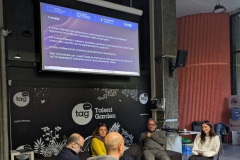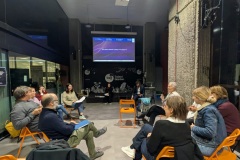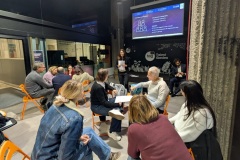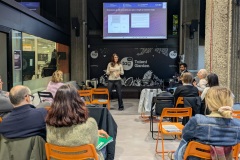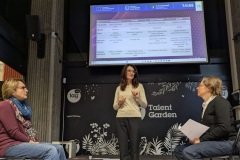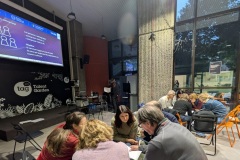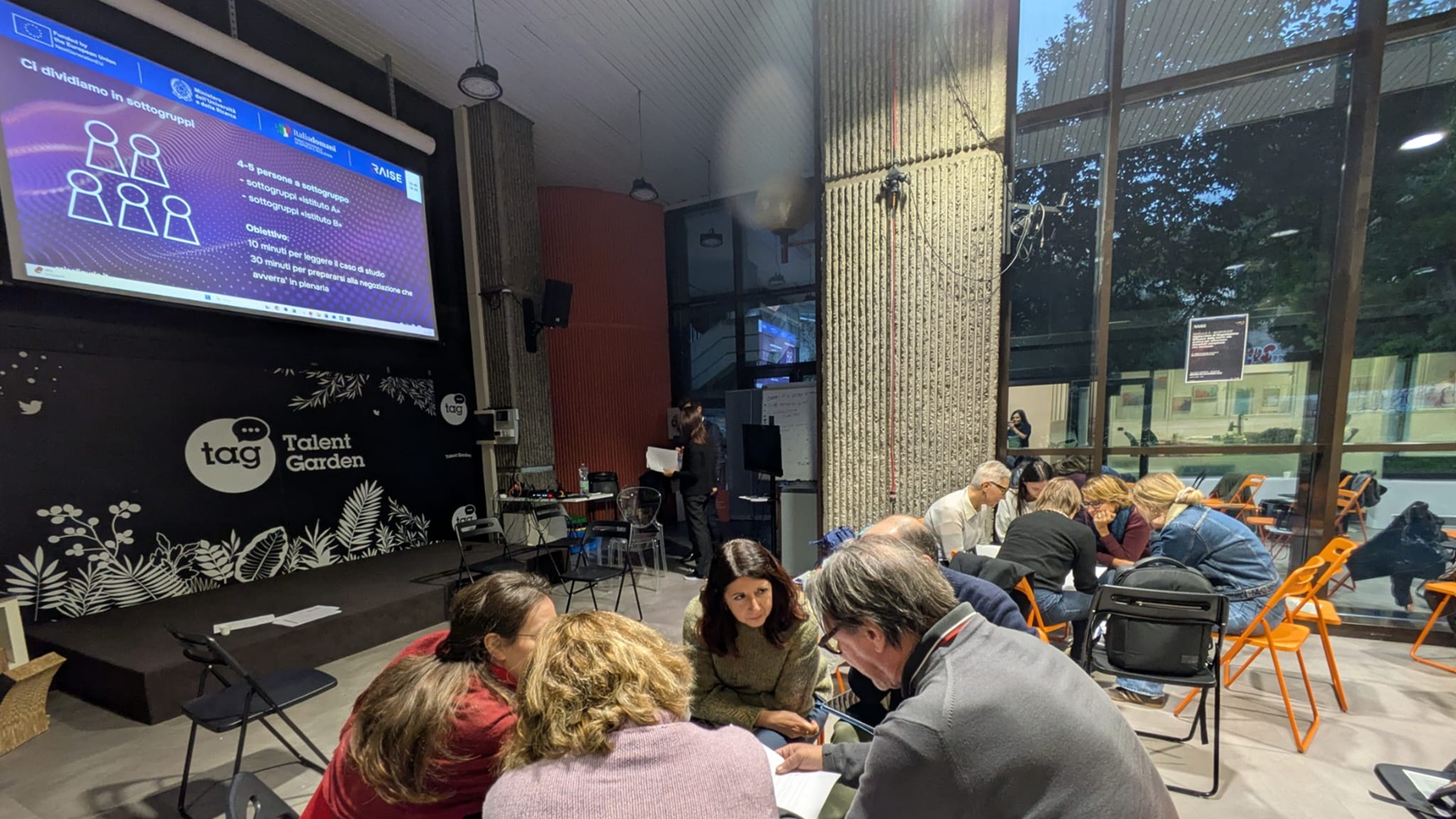
The “Effective Negotiation Masterclass”, part of Module 3 of P1 – RAISE Knowledge Transfer & Entrepreneurship Academy (second edition) and coordinated by RAISE’s Spoke 5, is included in the Training Program aimed at researchers and PhD candidates, both within and outside the RAISE network.
The workshop offered an intensive pathway to translate theory into practice and to face the challenges of scientific and organizational collaboration with greater confidence.
Designed and led by Barbara Galli, International Professional Coach and founder of BGTalentUp, with the participation of Giorgio De Sario, Founder & Executive Chairman of Day One, the Masterclass guided participants through an experiential journey that combined established methodologies with innovative negotiation tools, enriched by opportunities for exchange and hands-on experimentation.
The session began with an exploration of the Negotiation Polygon and the Zone of Possible Agreement (ZPA) – concepts useful for defining objectives, margins for maneuver, and underlying interests. From there, the group explored different negotiation styles, learned how to manage conflict situations, and developed strategies for fostering constructive dialogue. Practical exercises encouraged a deeper understanding of interpersonal dynamics, helping participants recognize their own behavioral patterns and transform them into relational strengths.
Special attention was devoted to the role of emotions in negotiation, considered essential components of the process. Learning to identify and manage emotions helps build trust, promote cooperation, and reach more balanced and conscious agreements. Through case studies and moments of shared reflection, participants also addressed the topic of negotiation traps—the cognitive and relational habits that can undermine the balance between listening and assertiveness.
Among the practical tools presented, the BATNA (Best Alternative to a Negotiated Agreement) provided a concrete method for evaluating options and strengthening one’s negotiation position. The Johari Window and the Creativity Canvas for Negotiation enriched the experience with insights for self-reflection and group analysis, encouraging a broader understanding of relationships and interpersonal communication. A case study simulation allowed participants to consolidate the skills acquired, transforming theory into applied competence.
“Bringing negotiation into the world of research means exploring a very different context from the corporate one,” explained Barbara Galli and Giorgio De Sario. “For researchers, negotiation is not primarily about profit, but about building alliances, sharing knowledge, and managing projects among organizations with diverse cultures and goals. It involves not only strategies, but also ethics, trust, and relational awareness. In managerial or commercial contexts,” they added, “negotiation tends to be more direct and result-oriented. Yet in every field, negotiating does not mean selling — it’s about creating sustainable relationships based on listening and mutual understanding. Ultimately, regardless of our role or context, we remain human beings, and the quality of our relationships determines the quality of the outcomes we achieve.”
The Masterclass offered an engaging and meaningful experience in which theory, practice, and introspection merged into a path of personal and professional growth. It provided a valuable opportunity to understand how negotiation, conceived as a conscious form of dialogue, can become a tool for cultural innovation — one capable of connecting diverse worlds, from science to business, through collaboration, emotional intelligence, and shared responsibility.


